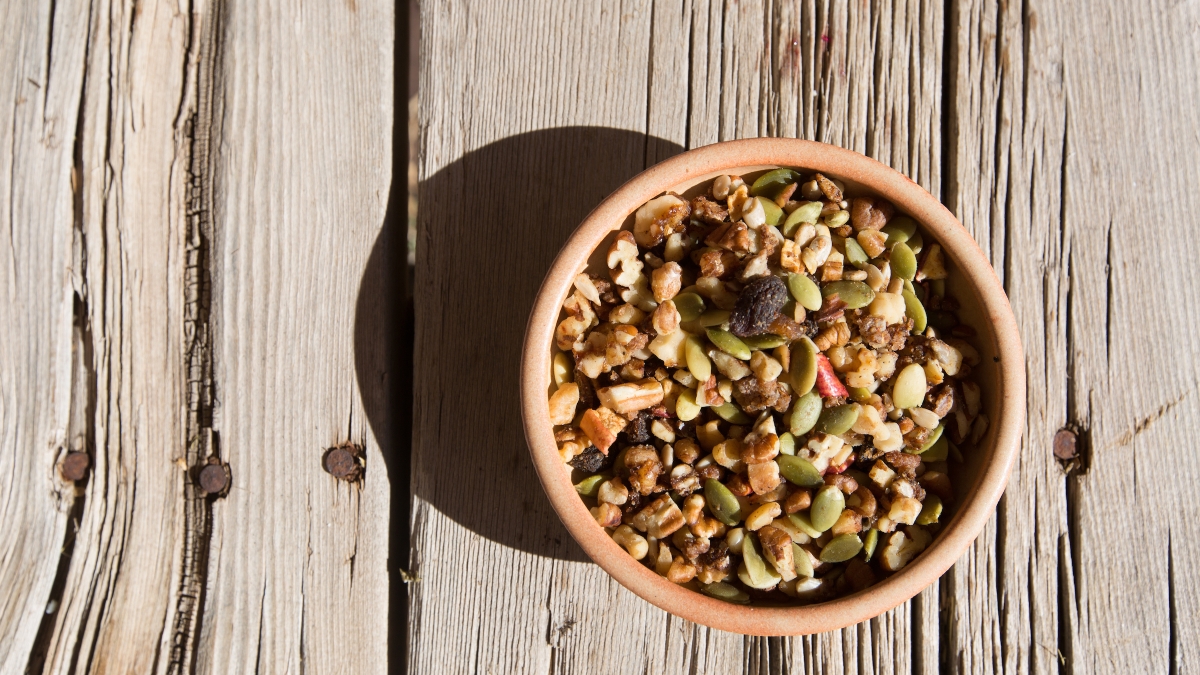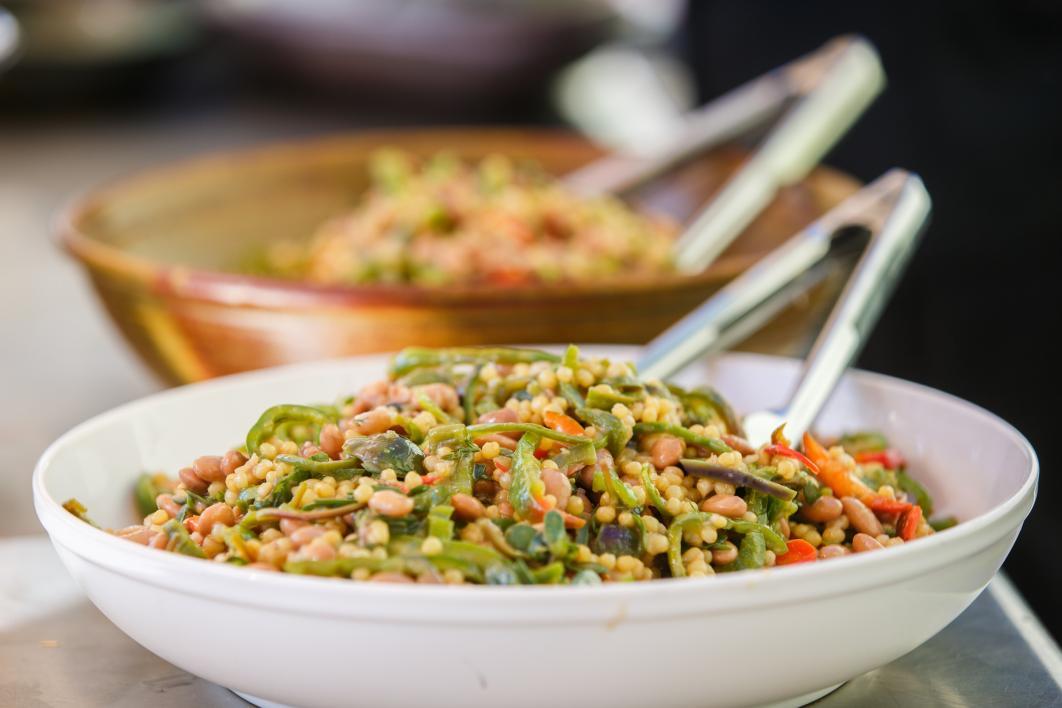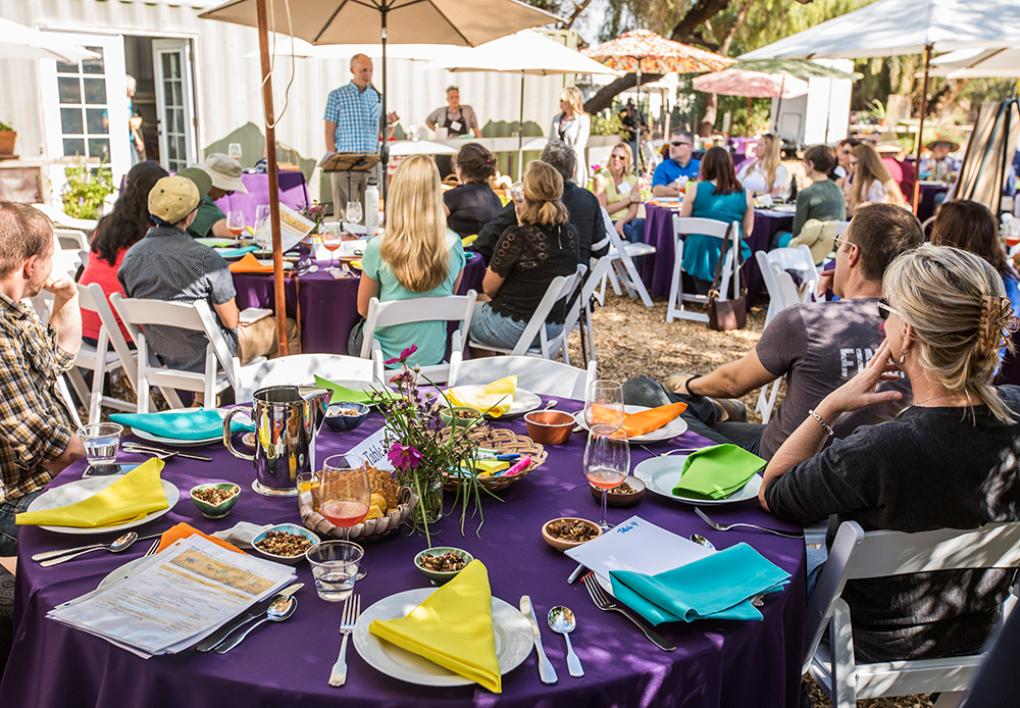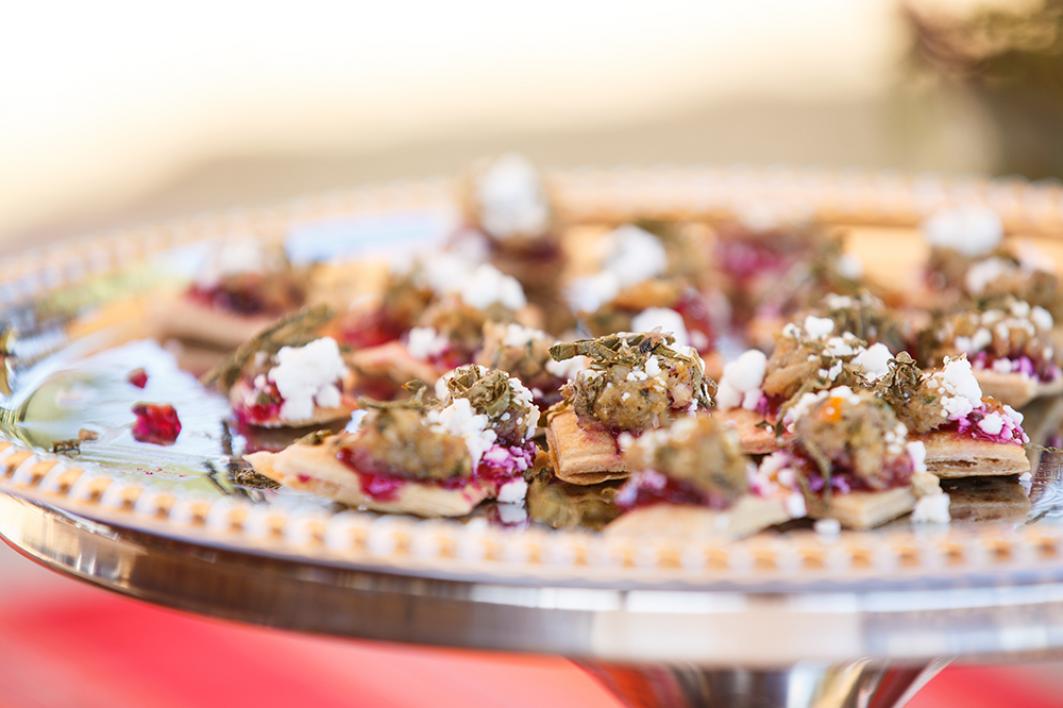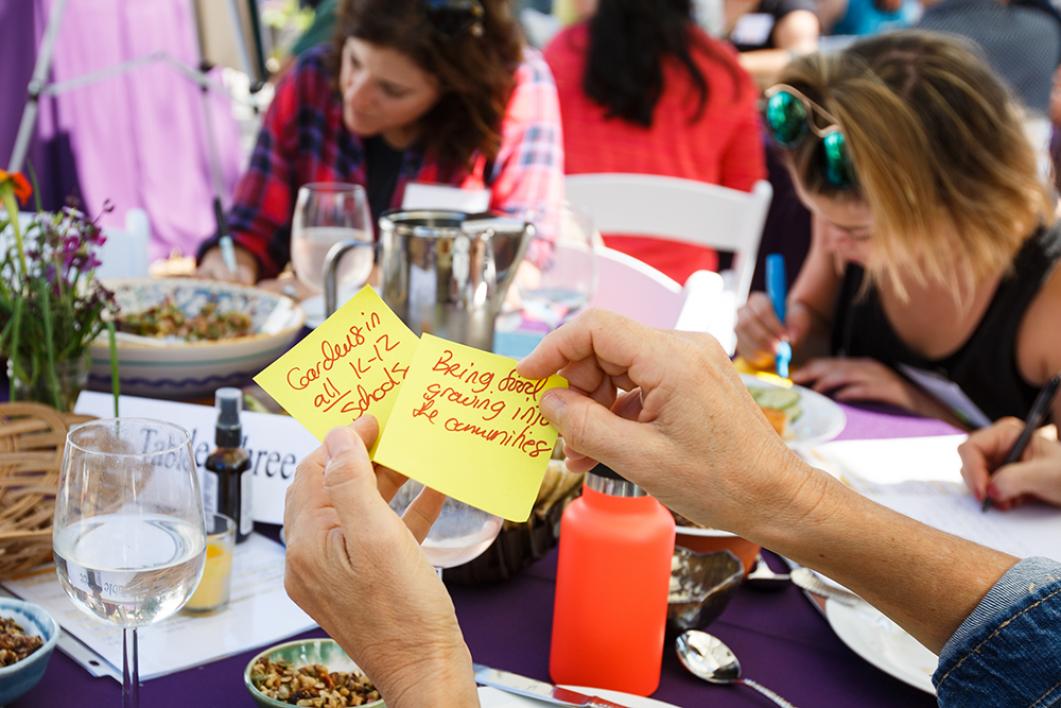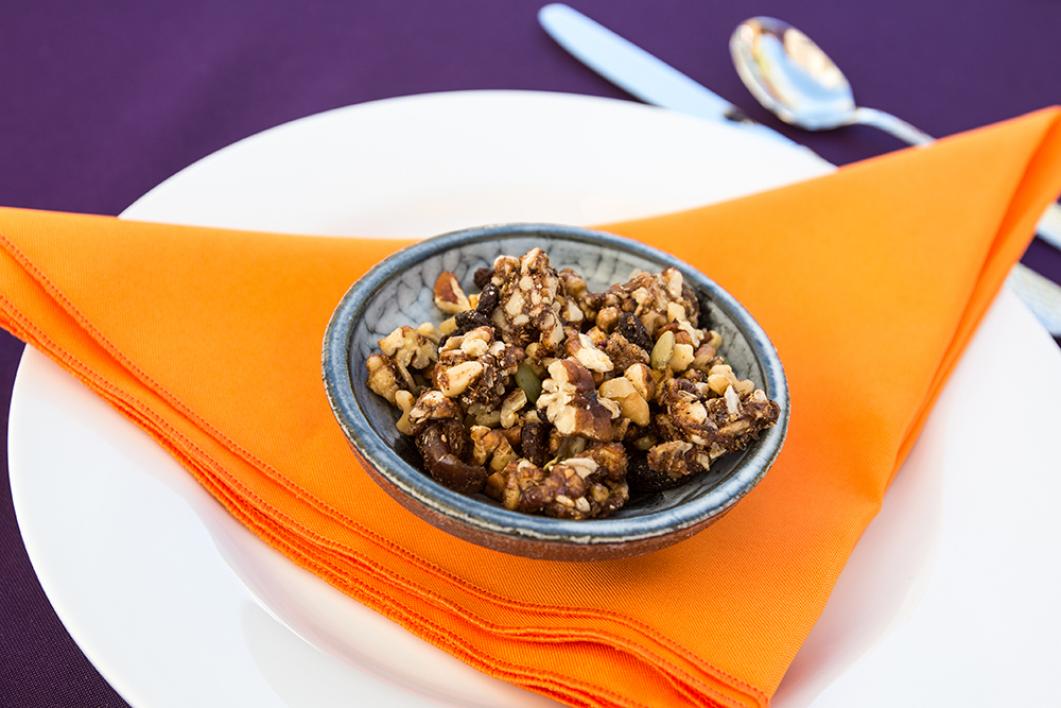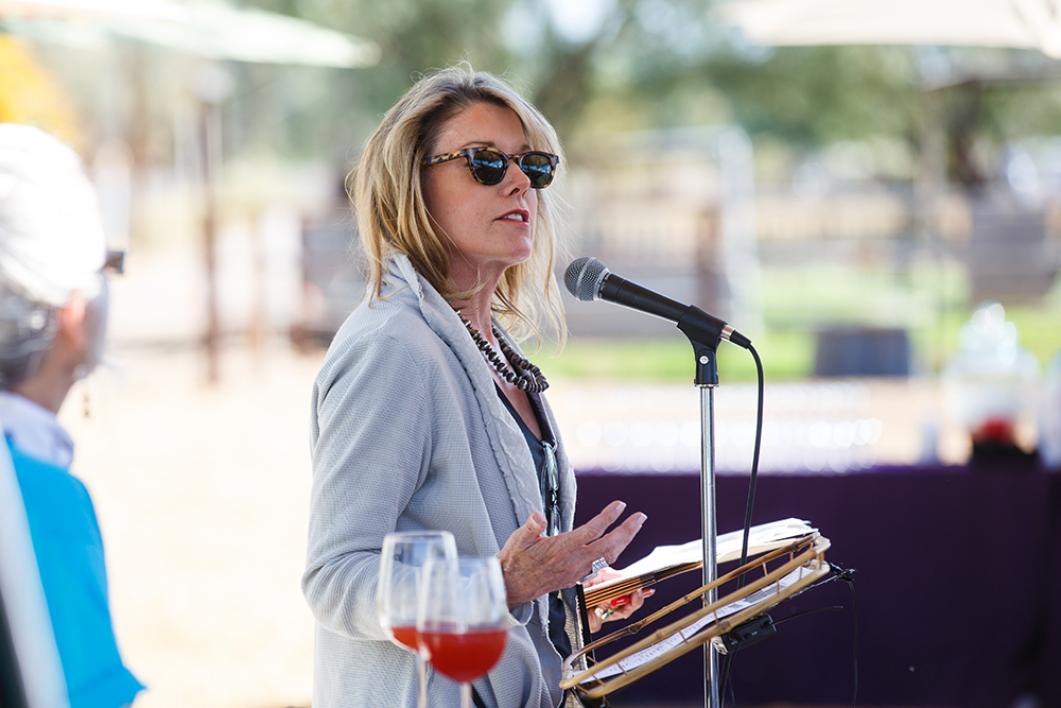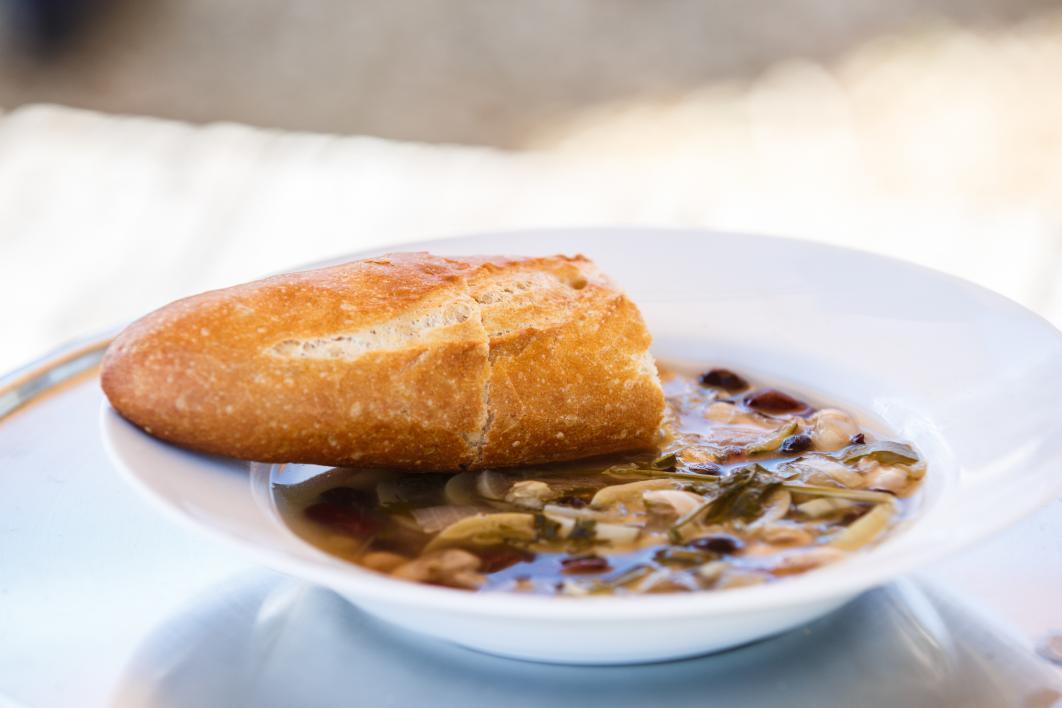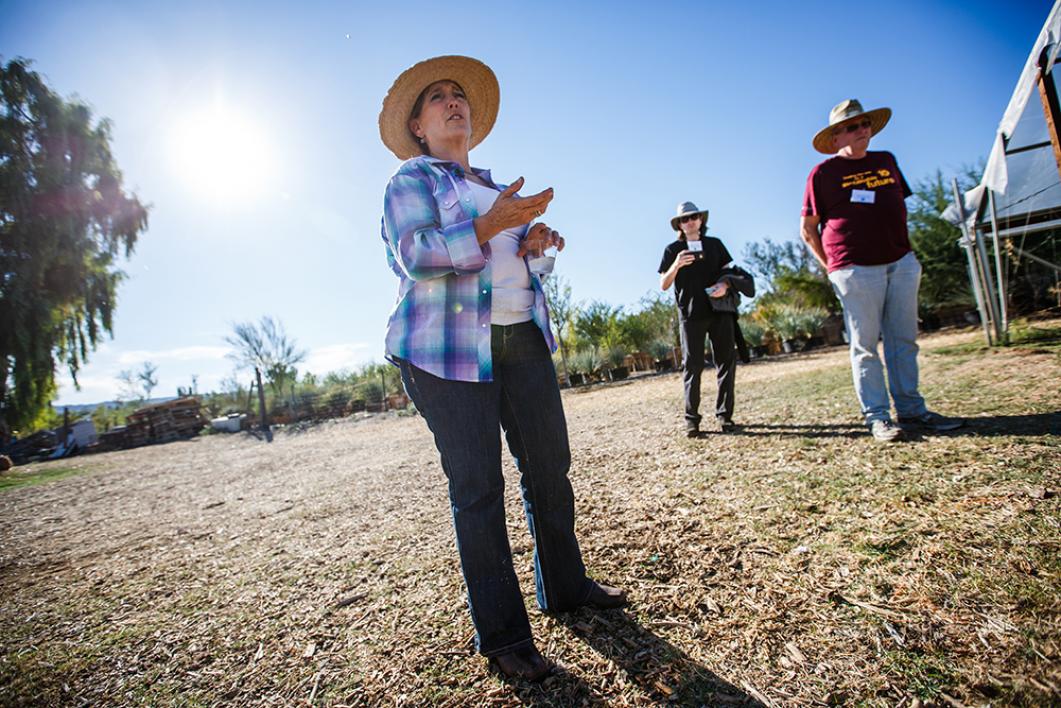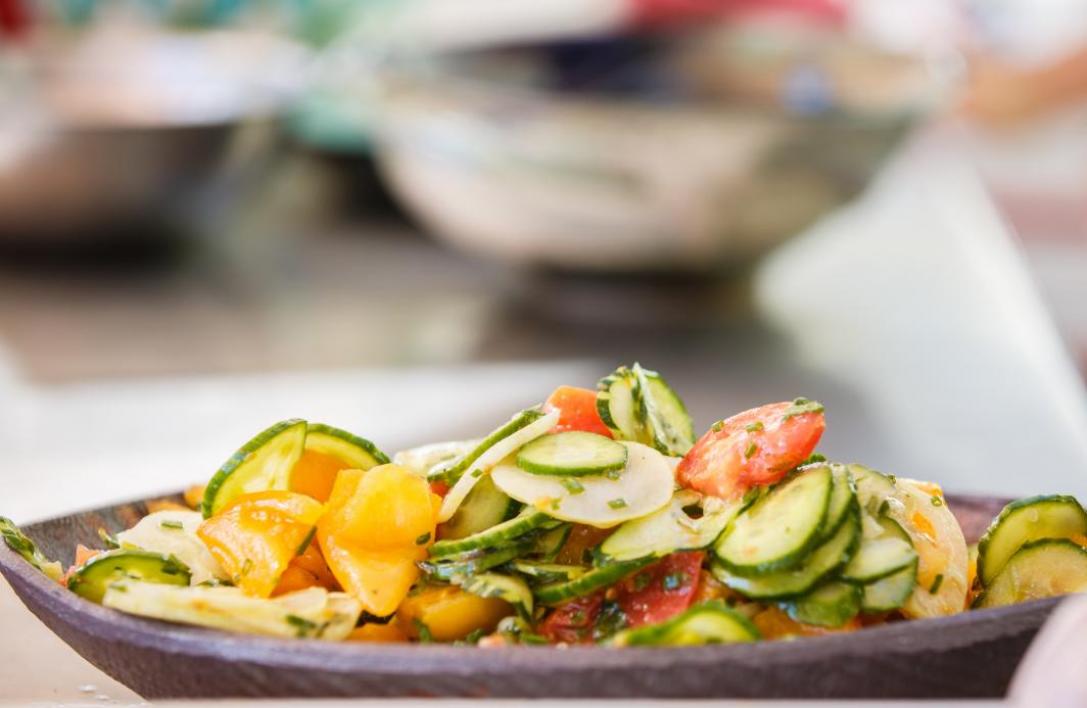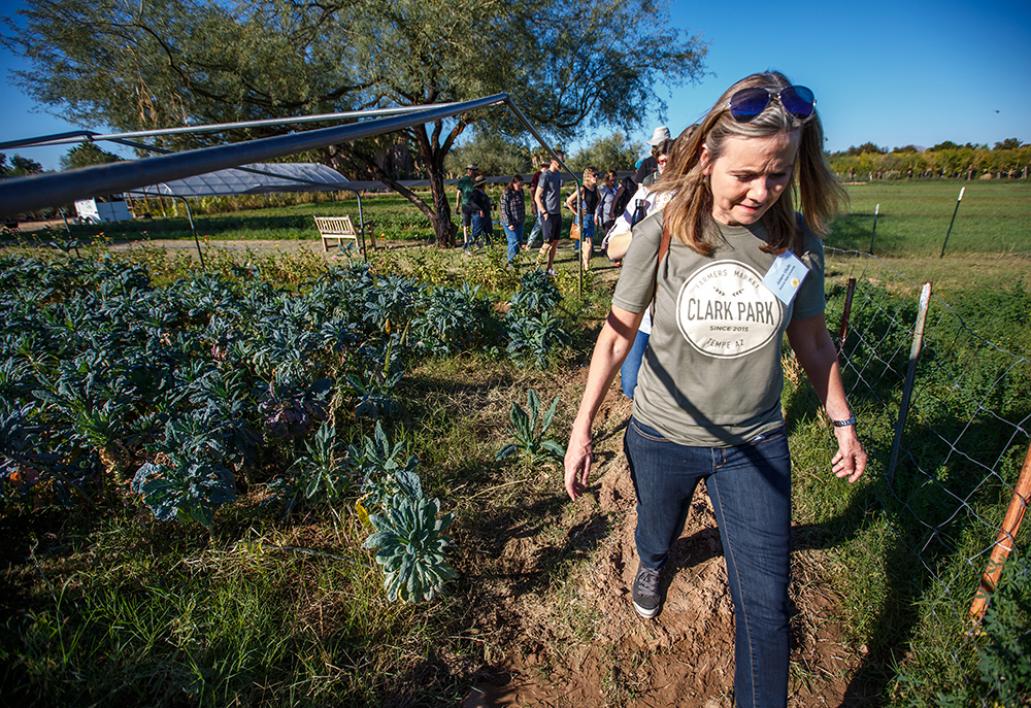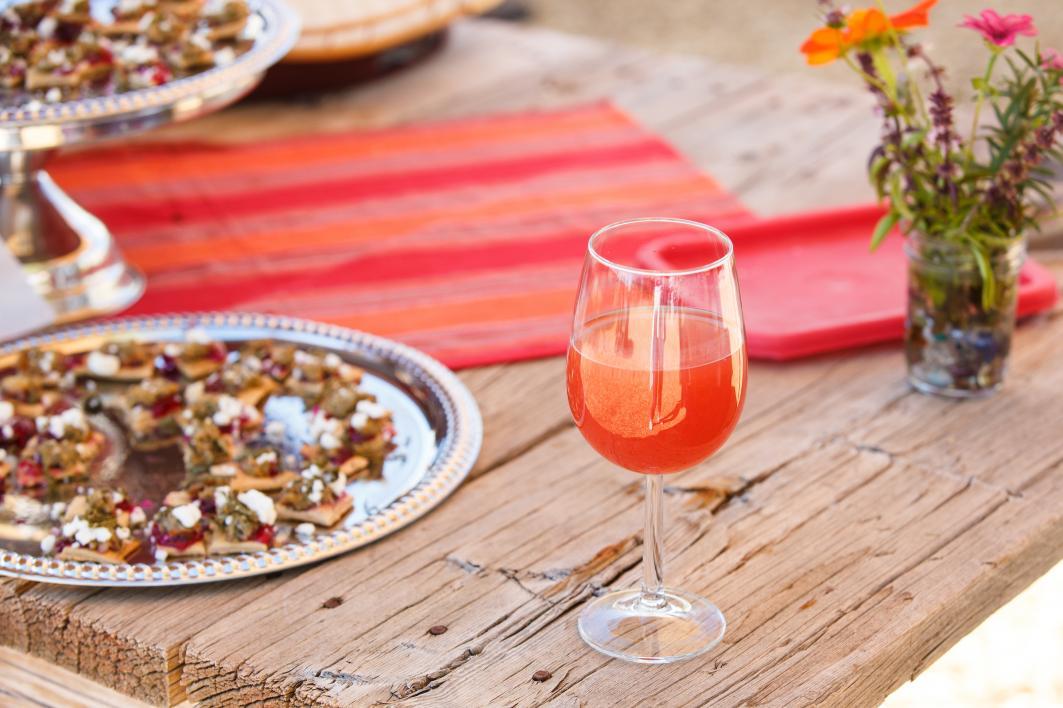Chefs, professors and everyday foodies were busy using their taste buds to delineate the finer notes of hibiscus, passion fruit and orange blossom. Their minds, however, were focused on whether they’d have access to such ingredients in the future.
They gathered for Dinner 2040, a gourmet-meal-tasting-turned-panel-discussion led by ASU philosophy professor Joan McGregor, at an organic farm in Phoenix. The event put university experts together with chefs, activists, legislators and others to think about the future of food in Maricopa County.
“We’re here today to learn from each other, and to share ideas and expertise in order to produce a vision of what the food system should look like in 25 years,” McGregor said.
The current system is “an environmental and humanitarian disaster,” said Maya Dailey, owner and operator of Maya’s Farm, railing against pesticides, GMOs, sub-par wages and hostile working conditions.
Diners took their places Sunday morning at tables set between mature mesquite trees at Maya's Farm, where they were met with bowls of a 10-spice nut mixture, provided by the same chef who created the tangy flower punch, Danielle Leoni of Jamaican-inspired eatery The Breadfruit and Rum Bar.
From there, they were served a variety of equitably produced epicurean delights: salads — one grain-based, one cucumber-based — from chef Chris Bianco of downtown Phoenix’s renowned Pizzeria Bianco; breads from Tempe’s Essence Bakery; and desserts from local pastry chef Tracy Dempsey and Fairytale Brownies’ Eileen Spitalny.
The food led to discussions.
At one table, Sam Pillsbury of Pillsbury Wine Company lamented the degradation of society’s ability to appreciate food that’s good for them and good for the environment: “People don’t know what fresh tastes like anymore,” he said. “They have to re-learn what to expect to taste.”
A few tables over, Arizona state Rep. Ken Clark talked about the need for policy that supports sustainable food practices.
Next to his table, ASU associate professor of Italian Juliann Vitullo and her group envisioned a future education system that incorporates food production into the curriculum and features a garden in every schoolyard.
Video by Deanna Dent/ASU Now
Adrienne Udarbe, executive director of the Arizona-based non-profit Pinnacle Prevention, which works to grow healthy families and communities through a more conscious food system, said Dinner 2040 is “the first step in a dialogue” between ASU and community partners that has the potential to make real change, calling the unique gathering a valuable opportunity to “hear various perspectives from a diversity of players.”
And that’s the whole idea — McGregor purposely chose to employ a charrette-style gathering, in which various stakeholders join their knowledge to tackle an issue. In the case of Dinner 2040, they’re focusing on five key values:
- Ensuring that our food system reflects historical, cultural and place-based best practices.
- Designing a food system that considers the current strengths and challenges in the region’s availability of natural resources and protects those resources for future generations.
- Ensuring our food system supports creating healthy, balanced meals and dishes that draw on culinary traditions, creativity and experimentation.
- Designing a food system that ensures justice for the environment, animals, workers and consumers.
- Making sure individuals and communities have a voice in their food system, control over where their food comes from and access to the types of food they want.
“It’s very important to understand what we can do,” Bianco said. “And what we can do is come together to discuss and try to figure things out.”
McGregor said there is much to be done, but that she has high hopes.
“Communities need to get involved in this to make a difference,” she said, “but I think some people in the local food movement are already on it, encouraging people to buy locally and using locally sourced foods. Just getting people thinking about it can lead to more positive action.”
McGregor hopes Dinner 2040 events will help to develop a template for “future of food” workshops and dinners in communities across North America. Though there is no date set for the next workshop, interested parties can keep track of the initiative’s progress here.
Top photo: Chef Danielle Leoni created a dish of nuts, dates and raisins from Bob McClendon's farm in Phoenix, spices from around the world, and pumpkin seeds and sunflower seeds from Maya's Farm in Phoenix on Sunday. Photo by Anya Magnuson/ASU Now
More Environment and sustainability

A world full of plastic ... not fantastic
Editor’s note: This is the seventh story in a series exploring how ASU is changing the way the world solves problems.When Timothy Long’s kids were growing up, he never let them toss…

Team wins $10M XPRIZE Rainforest competition for novel solution
Several Arizona State University experts are on a team that created a new way to put a price on the rainforest in order to save it, and on Friday they won the top award in the prestigious $10 million…

ASU President Michael Crow named to TIME100 Climate list
Arizona State University President Michael Crow has been named to the 2024 TIME100 Climate list of leaders and innovators driving real climate action.The list includes leaders across a range of…
